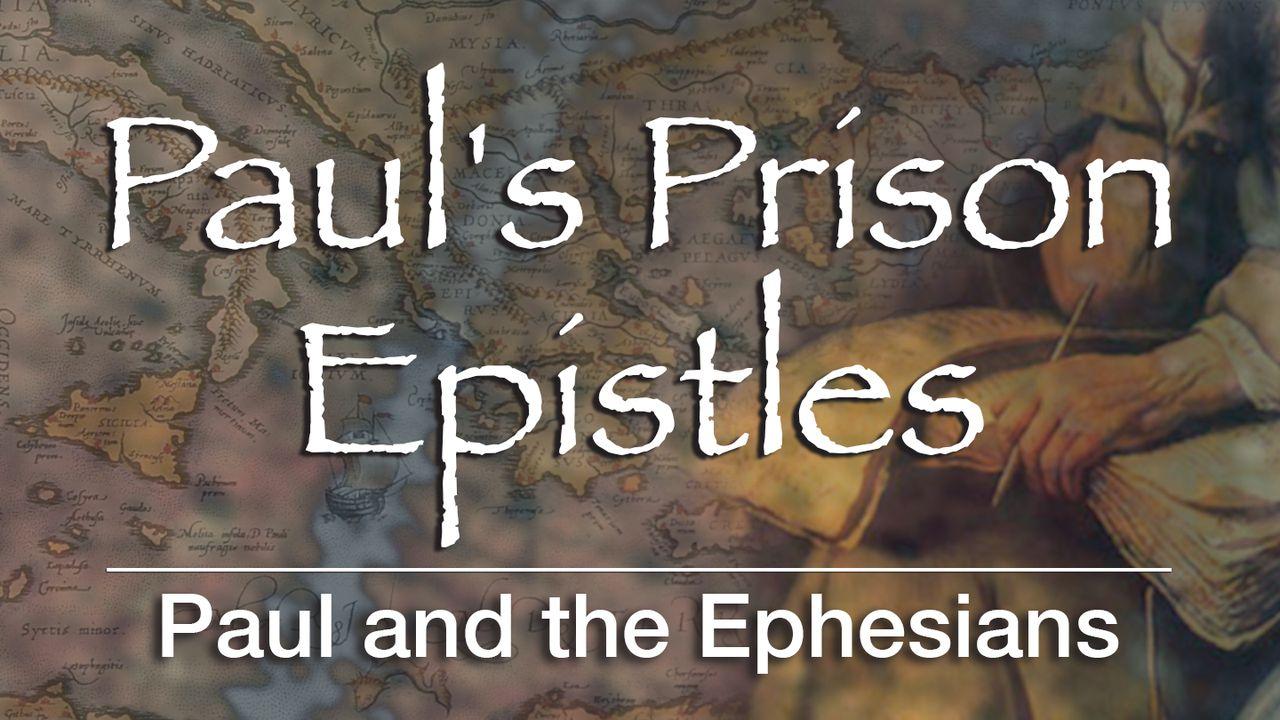Paul's Prison Epistles: Paul and the Ephesians预览

Citizenship: Ephesians 2:1-22
Paul’s teaching on citizenship in God’s kingdom of light can be divided into three sections: First, Ephesians 2:1-3 focuses on the fact that fallen human beings are born into the kingdom of darkness and are enemies of God by nature. Second, Ephesians 2:4-10 details the way God grants us citizenship in his kingdom by transferring us from the kingdom of darkness to the kingdom of light. Third, Ephesians 2:11-22 discusses the nature of our citizenship in the kingdom of light.
First, Paul reminded his readers that the human race is sinful and fallen. We are spiritually dead; we have evil natures; we serve God’s enemies; and as a result we are liable to fall under God’s wrath on the Day of Judgment. Consider the way he described fallen humanity in Ephesians 2:1-3:
You were dead in your transgressions and sins … you followed the ways of this world and of the ruler of the kingdom of the air… All of us also lived among them at one time, gratifying the cravings of our sinful nature and following its desires and thoughts. Like the rest, we were by nature objects of wrath (Ephesians 2:1-3).
Fallen human beings are God’s enemies. Before God saves us, we willingly follow our sinful natures, and we serve Satan, the ruler of the kingdom of the air.
God sovereignly ruled that some people would inherit salvation. So, in Ephesians 2:4-10, Paul turned to the fact that God uses his royal prerogative to transfer them from the kingdom of darkness to the kingdom of light. As part of this process he renews our spirits so that we are spiritually alive. And he recreates us in Christ so that we have new natures that love God. He also predestines good works for us to do so that we serve God instead of his enemies. And as a result, we look forward to incomparable riches in the coming age, rather than to God’s wrath and judgment.
The final topic Paul addressed in this section was the way God has now fulfilled the Old Testament ideal of combining both Jews and Gentiles into one kingdom under God’s sovereign rule. This ideal is mentioned throughout the Old Testament.
For example, in Psalm 22:27-28 David laid out this vision for the future of the kingdom of God:
All the ends of the earth will remember and turn to the Lord, and all the families of the nations will bow down before him, for dominion belongs to the Lord and he rules over the nations (Psalm 22:27-28).
In Paul’s day, however, the status of Gentile Christians was a highly controversial matter. The Jewish Christians did not generally object to the conversion of the Gentiles. But some of them did feel that Gentiles were second-class Christians.
Before Christ came the Jews actually did receive preferential treatment in God’s kingdom. God’s covenant people consisted primarily of the nation of Israel, and the fullest covenantal blessings belonged to free male Jews. Paul knew this truth of Old Testament faith. But through the apostles, the New Testament teaches that that all believers — whether Jew or Gentile, male or female, slave or free — receive eternal covenant blessings only through union with Christ. In Christ, each believer is counted as if he or she were Jesus himself, the free male Jew who kept God’s covenant perfectly, and inherited all the covenant blessings.
As a result, the old distinctions between Jews and Gentiles in God’s kingdom are obsolete. Because everyone gains salvation in the same way, the new standard is equal status and equal treatment for every citizen regardless of ethnicity. And because of this, all citizens of the kingdom of light are full citizens with the same rights and privileges, including full access to God. As Paul wrote in Ephesians 2:13-19:
But now in Christ Jesus you who once were far away have been brought near… For through him we both have access to the Father by one Spirit. Consequently, you are no longer foreigners and aliens, but fellow citizens with God's people and members of God's household (Ephesians 2:13-19).
读经计划介绍

This plan examines how Paul designed Ephesians to teach Christians how to build, maintain and thrive in God's kingdom.
More


